| Weight | 1 lbs |
|---|---|
| Dimensions | 9 × 5 × 2 in |
| host | mouse |
| isotype | IgG |
| clonality | monoclonal |
| concentration | concentrate, predilute |
| applications | IHC |
| reactivity | human |
| available size | 0.1 mL, 0.5 mL, 1 mL concentrated, 7 mL prediluted |
rabbit anti-Desmoglein-3 monoclonal antibody (ZR128) 6159
Price range: $160.00 through $528.00
Antibody summary
- Rabbit monoclonal to Desmoglein-3
- Suitable for: Immunohistochemistry (formalin-fixed, paraffin-embedded tissues)
- Reacts with: Human
- Isotype:IgG
- Control: Squamous cell carcinoma
- Visualization: Membrane
- 0.1, 0.5, 1.0 mL concentrated, 7 mL prediluted
rabbit anti-Desmoglein-3 monoclonal antibody ZR128 6159
| target relevance |
|---|
| Protein names Desmocollin-3 (Cadherin family member 3) (Desmocollin-4) (HT-CP) |
| Gene names DSC3,DSC3 CDHF3 DSC4 |
| Mass 99969Da |
| Function FUNCTION: Component of intercellular desmosome junctions. Involved in the interaction of plaque proteins and intermediate filaments mediating cell-cell adhesion. May contribute to epidermal cell positioning (stratification) by mediating differential adhesiveness between cells that express different isoforms. |
| Subellular location SUBCELLULAR LOCATION: Cell membrane; Single-pass type I membrane protein. Cell junction, desmosome. |
| Tissues TISSUE SPECIFICITY: Epidermis, buccal mucosa, esophagus and cervix. |
| Domain DOMAIN: Calcium may be bound by the cadherin-like repeats. {ECO:0000305}.; DOMAIN: Three calcium ions are usually bound at the interface of each cadherin domain and rigidify the connections, imparting a strong curvature to the full-length ectodomain. {ECO:0000250}. |
| Involvement in disease DISEASE: Hypotrichosis and recurrent skin vesicles (HRSV) [MIM:613102]: A disorder characterized by hypotrichosis and the appearance of recurrent skin vesicle formation. Affected individuals show sparse and fragile hair on scalp, as well as absent eyebrows and eyelashes. Vesicles filled with thin, watery fluid are observed on the scalp and skin of most of the body. Mucosal vesicles are absent. {ECO:0000269|PubMed:19765682}. Note=The disease is caused by variants affecting the gene represented in this entry. |
| Target Relevance information above includes information from UniProt accession: Q14574 |
| The UniProt Consortium |
Data
Publications
| pmid | title | authors | citation |
|---|---|---|---|
| We haven't added any publications to our database yet. | |||
Protocols
| relevant to this product |
|---|
| IHC |
Documents
| # | SDS | Certificate | |
|---|---|---|---|
| Please enter your product and batch number here to retrieve product datasheet, SDS, and QC information. | |||
Only logged in customers who have purchased this product may leave a review.
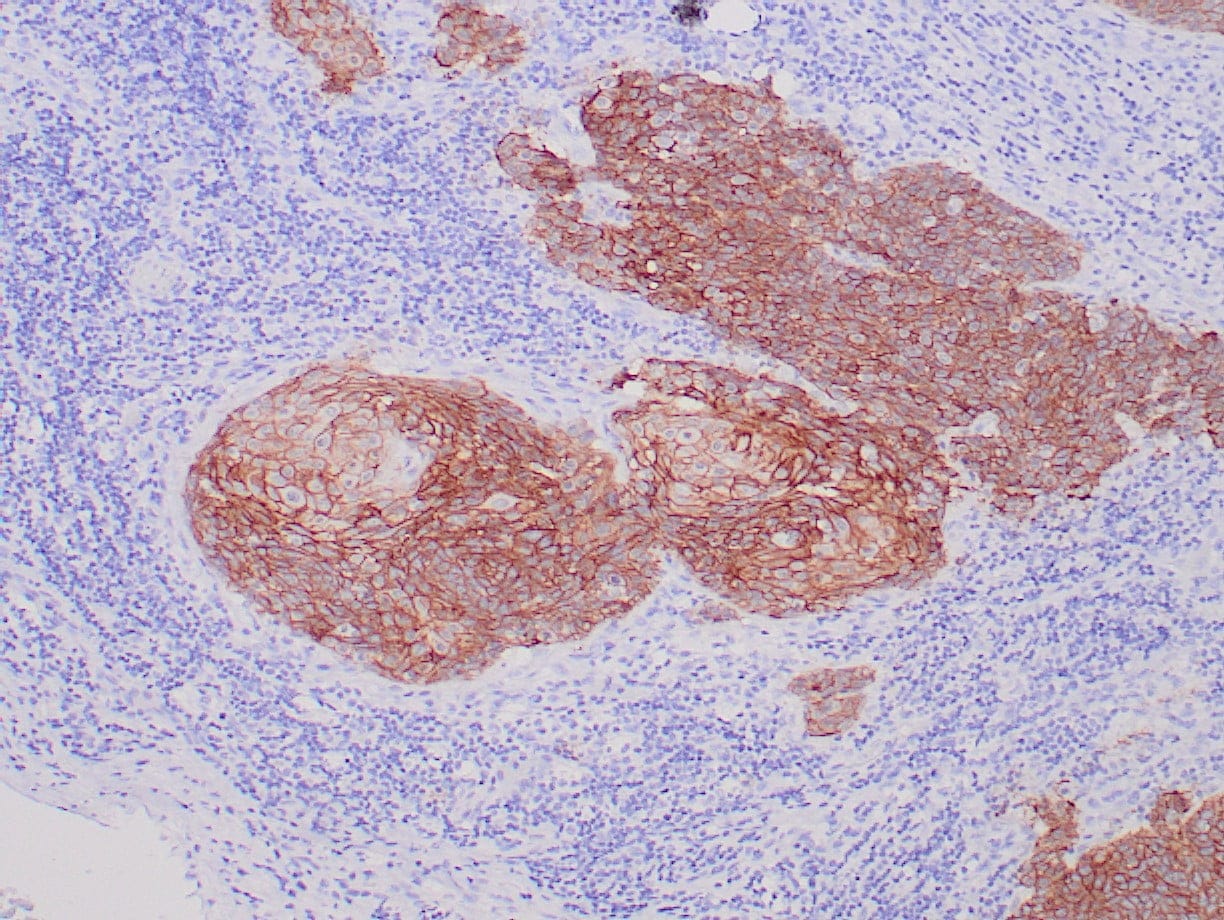
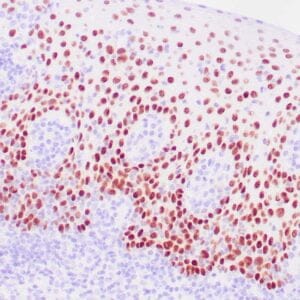
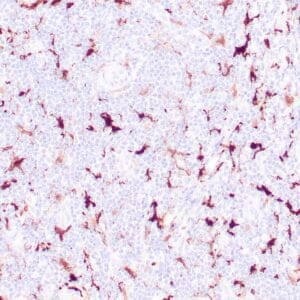
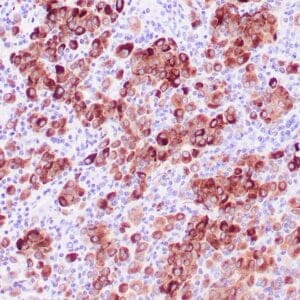
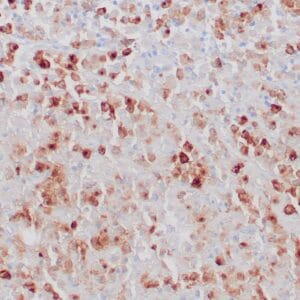

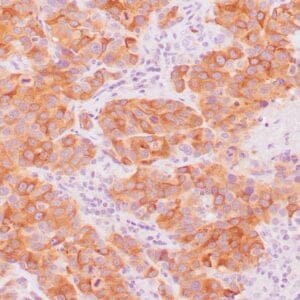
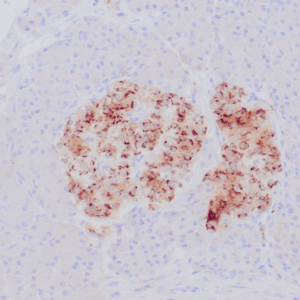
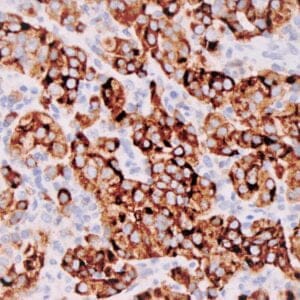
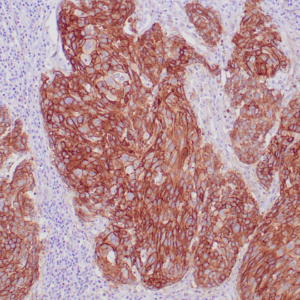

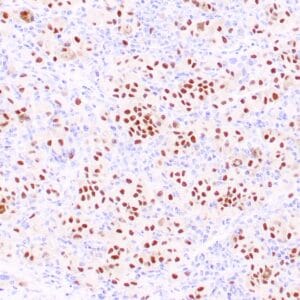
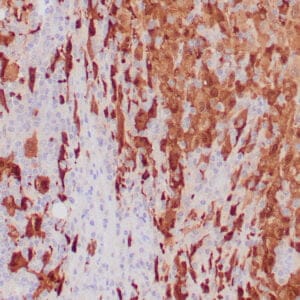
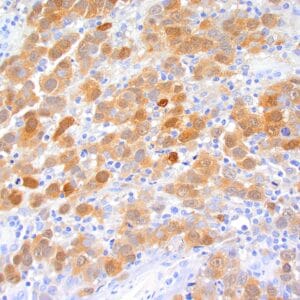
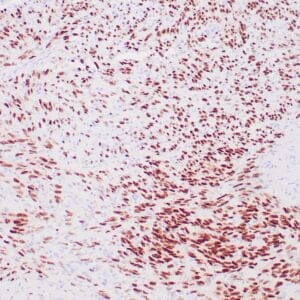
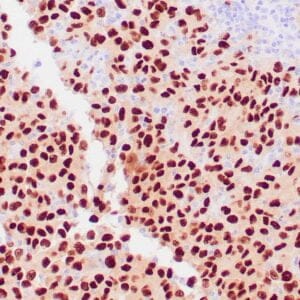
Reviews
There are no reviews yet.